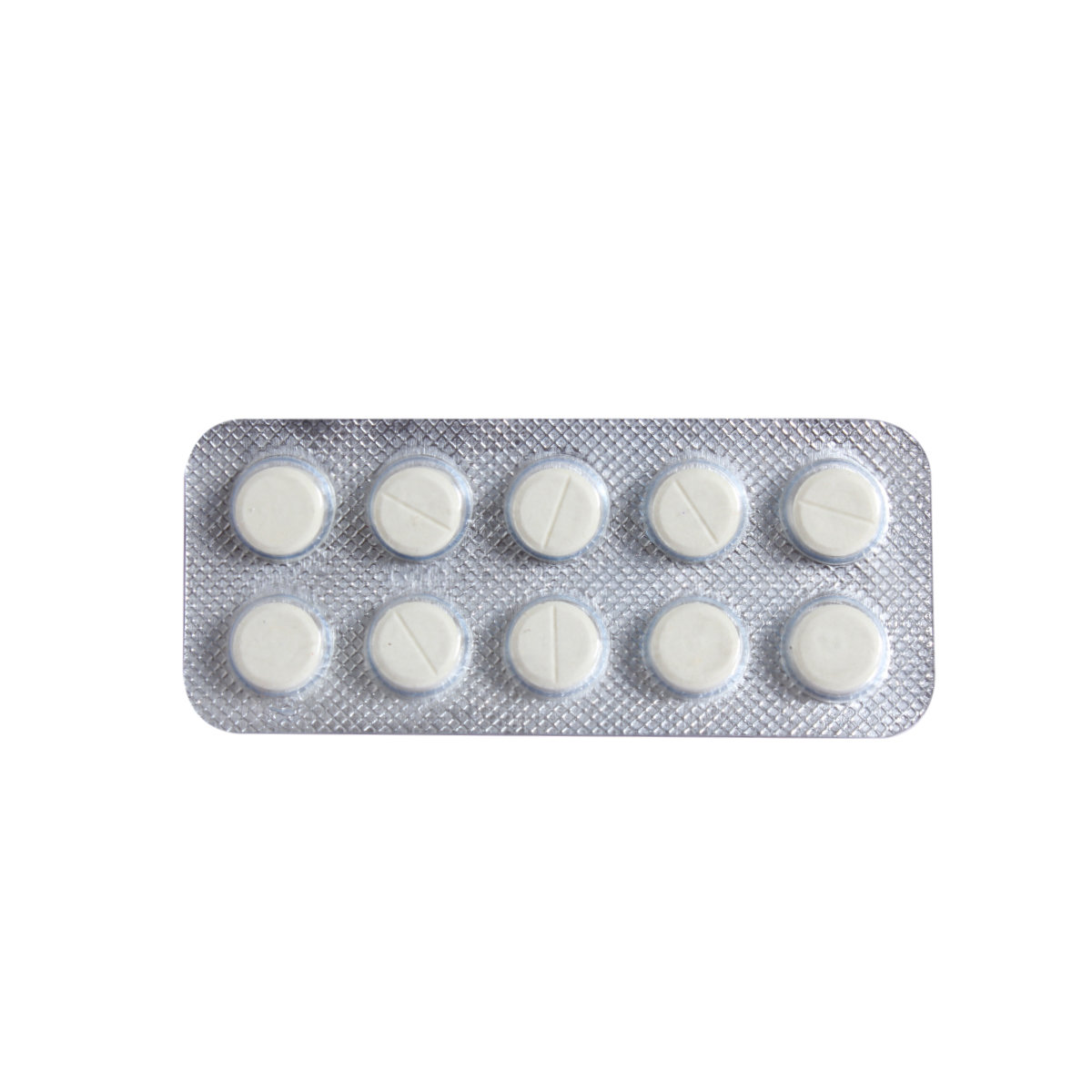Mifepristone
About Mifepristone
Mifepristone belongs to the class of medication called 'progestin antagonist' used in combination with Misoprostol to induce a medical abortion. Mifepristone is primarily used to end an early pregnancy (lasting up to 70 days or less than this) or an unwanted pregnancy with medication help.
Mifepristone contains Mifepristone, which works by blocking the effect of progesterone (female hormone), which is needed to sustain a pregnancy. In the absence of progesterone, the lining of the uterus breaks down as it does every month during the menstrual cycle, and the growth of pregnancy is stopped. It takes approximately 24-48 hours for Mifepristone to show effect. Once it starts acting, you will experience uterine bleeding. But no uterine bleeding does not mean that the abortion is complete.
Having a medical abortion is a very emotional decision. You should be mentally prepared for all the risks a surgical absorption could lead to, like incomplete abortion, heavy and prolonged bleeding (which may last up to 30 days), fever, and digestive system discomfort. Also, if the medication does not work, it can lead to an unwanted ongoing pregnancy, leading to fetal defects. So, to avoid any complications, keep in regular touch with your doctor and do as advised.
Mifepristone should be taken in dose and duration as advised by the doctor, preferably with food. It would be best to take it at a fixed time every day. It is a tablet and should be taken orally with a glass of water. In some cases, you may experience nausea, uterine cramps, vomiting, diarrhoea, infection following abortion, dizziness, and uterine bleeding. Most of these side effects of Mifepristone subside with time. But if your vaginal bleeding does not, please visit the doctor immediately, and it requires immediate medical attention.
Mifepristone should not be stopped abruptly without consulting the doctor as it may lead to incomplete abortion. Inform your doctor before starting Mifepristone if you have or ever had an ectopic pregnancy (when the fetus grows in the fallopian tube), using an intrauterine device, or if you are breastfeeding, any bleeding disorder or heart problem. Do not do strenuous activities like running, heavy exercise, or driving to avoid excessive bleeding. The doctor will also check with ultrasound if the absorption is complete as no bleeding does not mean that abortion is complete.
Uses of Mifepristone
Medicinal Benefits
Mifepristone contains Mifepristone, which is taken in a regimen with Misoprostol to induce medical abortion or terminate a pregnancy before 70 days. It works by blocking the effect of progesterone (female hormone) needed to sustain a pregnancy. In the absence of progesterone, the lining of the uterus breaks down as it does every month during the menstrual cycle, and the growth of pregnancy is stopped. It takes approximately 24-48 hours for Mifepristone to show effect.
Directions for Use
Storage
Side Effects of Mifepristone
- Weakness
- Nausea
- Uterine cramps
- Vomiting
- Diarrhoea
- Dizziness
- Infection following abortion
- Uterine bleeding
Drug Warnings
Women who have an ectopic pregnancy (a pregnancy outside of the uterus, problems with the adrenal glands (the glands near the kidneys), currently taking corticosteroid therapy (medications), have an allergic reaction to mifepristone, misoprostol or similar drugs, have bleeding problems or taking the blood-thinning drug (warfarin, clopidogrel, aspirin, heparin etc.) should not use Mifepristone and contact doctor. After using Mifepristone if you start feeling sleepy, do not drive or operate heavy machinery. If you use an intrauterine device (IUD), please remove it before taking the Mifepristone. Regular follow-up with the doctor is required for constant monitoring of abortion. If medical termination does not happen or becomes unsuccessful, it should be terminated surgically as it can lead to foetal defects. Your doctor will examine by performing ultrasonography to confirm if the abortion is complete. St John’s Wort (herbal supplements to treat mild depression) and grapefruit juice should not be taken when taking Mifepristone as it is known to interact.
Drug Interactions
Drug-Drug Interactions: Mifepristone interacts with corticosteroids (dexamethasone), antifungal (ketoconazole, itraconazole), antibiotics (erythromycin, rifampicin), anti-epileptic (phenytoin, phenobarbital, carbamazepine), immunosuppressants (cyclosporine, tacrolimus, sirolimus), medicines to treat migraine (ergotamine). So, Mifepristone should not be taken along with these drugs.
Drug-Food Interactions: Please tell your doctor about all the Vitamins, herbs, and supplements you are taking as the Mifepristone may interact with them to produce unpleasant side effects. Also, Mifepristone is known to interact with St John’s Wort (a natural remedy used to treat mild depression) and grapefruit juice.
Drug-Disease Interactions: Mifepristone should be taken with caution in people with a bleeding problem, confirmed or suspected ectopic pregnancy, heart problem, liver or kidney disease, or vaginal bleeding.
Drug-Drug Interactions Checker List:
Safety Advice

Alcohol
unsafeAlcohol is known to cause excessive drowsiness if taken along with Mifepristone and increase uterine bleeding.

Pregnancy
unsafeMifepristone is used for medical abortion. If taken in pregnancy, it can lead to abortion.

Breast Feeding
cautionLet your doctor know if you are a nursing mother before prescribing Mifepristone; your doctor will decide whether Mifepristone can be taken by breastfeeding mothers or not.

Driving
unsafeMifepristone may reduce alertness or induce sleep and dizziness. If you experience these symptoms, don't drive or operate machinery.

Liver
cautionMifepristone to be taken with caution, especially if you have a history of Liver diseases/conditions. The dose may have to be adjusted by your doctor.

Kidney
cautionMifepristone to be taken with caution, especially if you have a history of Kidney diseases/conditions. The dose may have to be adjusted by your doctor.

Children
unsafeMifepristone is not recommended for children below the age of 12. The safety and effectiveness of Mifepristone have not been established in children due to limited testing of this drug on children by competent authorities worldwide. If necessary, your doctor will decide whether to give Mifepristone or not.
Habit Forming
Diet & Lifestyle Advise
- Keep your weight under control with a body mass index (BMI) of 19.5-24.9.
- Opt for a diet rich in whole grains, fruits, veggies, and low-fat dairy products.
- Quitting smoking and not drinking alcohol is the best strategy to lower the risk of any complications.
- Avoid chronic stress and physical exercise like running, as it might increase vaginal bleeding.
- Monitor your blood pressure daily and if there is too much fluctuation, then immediately contact your doctor.
- Get an ultrasound to check if the abortion is done completely to avoid unwanted complications.
- Try to include heart-healthy omega-3 fatty acid-containing foods or drinks in your daily diet. You can also use low-fat cooking oil like olive oil, soybean oil, canola oil, and coconut oil to lower your elevated blood pressure.
Special Advise
- Mifepristone should not be used to end the pregnancy after ten weeks.
- Contact your doctor immediately if you experience heavy vaginal bleeding after taking this medicine.
Patients Concern
Disease/Condition Glossary
Medical abortion: It is a procedure in which medicine is used to end a pregnancy. It is effectively causing abortion if performed in the first 70 days of pregnancy. Vagina bleeding occurs, and if it does not stop, please inform your doctor as it might require medical supervision. Having a medical abortion is a very emotional decision. You should be mentally prepared for all the risks a surgical absorption could lead to, like incomplete abortion, heavy and prolonged bleeding (which may last up to 30 days), fever, and digestive system discomfort. Also, if the medication does not work, it can lead to an unwanted ongoing pregnancy, leading to fetal defects. So, to avoid any complications, keep in regular touch with your doctor and do as advised.
FAQs
No, Mifepristone should be taken in the dose and duration as advised by the doctor. Taking it in more than the recommended dose might cause unpleasant side effects like excessive uterine bleeding.
No, the Mifepristone is not known to affect any future chances of fertility. Mifepristone is used for medical abortion.
If you miss a dose of Mifepristone, take the missed dose as soon as you remember it. However, if it's almost time for the next dose, do not take a double dose to make up for a missed one.
After taking Mifepristone, you may or may not experience vaginal bleeding, which does not indicate complete abortion. Your doctor will examine with the performing ultrasonography to confirm if the abortion is complete.
No, the Mifepristone does not affect fertility. Use contraception during sexual intercourse as it may lead to unwanted pregnancy if you are not planning it.
Some of the common side effects of Mifepristone are nausea, weakness, fever/chills, vomiting, headache, diarrhoea, and dizziness.





